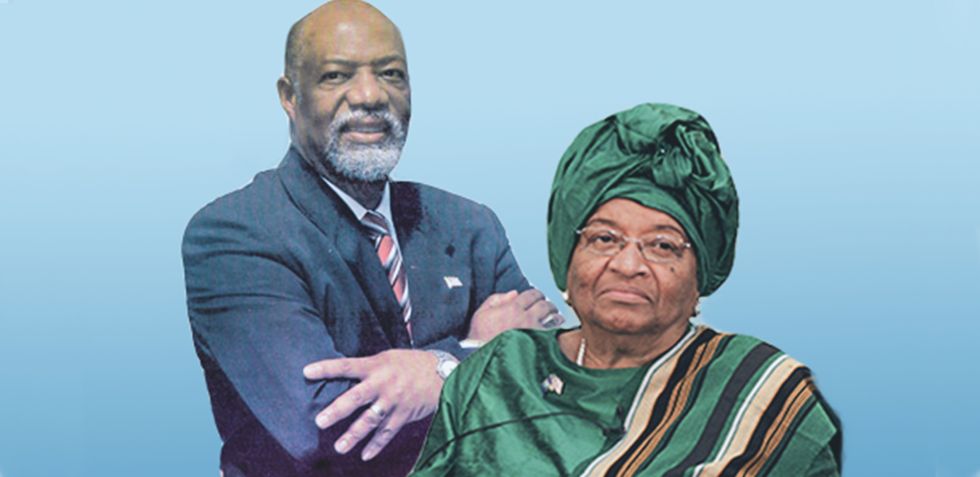Is Liberia’s Latest Attempt to Fight Corruption a Charade?
Some of the biggest politicians in Liberia have been charged with corruption by a presidential task force. But is it all for show?

On Wednesday, May 25, 2016 Liberia experienced something momentous. The chairman of the governing Unity Party and the speaker of the Liberian House of Representatives were charged with bribery and other crimes. Also charged along with them were two other individuals—one of whom is a former deputy minister of Lands, Mines and Energy.
Unity Party Chairman Varney Sherman and House Speaker Alex Tyler had earlier been named, along with several top Liberian officials, in a Global Witness exposé for respectively paying and receiving bribes for the purpose of amending Liberia’s procurement law.
Global Witness, in its report titled The Deceivers, noted that Mr. Varney Sherman who is also a well known Liberian lawer had advised British based Sable Mining to facilitate the amendment of Liberia’s procurement laws because it would be impossible for the company to acquire an iron ore concession which is open to tender under the existing version of the law.
Bribery Denials
All of those listed in the Global Witness report have all denied any wrong doing. While one of them, Dr. Richard Tolbert who was the head of Liberia’s National Investment Commission when the Sable Mining situation went down, has admitted to receiving money for a football team he headed at the time, all of them have specifically denied receiving bribes.
There may be a subtle or deliberate misunderstanding of the context or meaning of bribe giving and taking by the accused. It has been common knowledge in Liberia that members of the legislature are routinely given monetary inducements to pass laws.
Even the office of President Ellen Johnson Sirleaf has been accused of advising agencies of government to make payments to the legislature in order to get concession agreements passed.
Though Liberia’s Penal Code criminalizes “Bribery”, “Unlawful rewarding of public servants” and “Unlawful compensation for assistance in government matters”, many Liberians tend to think that giving money to members of the legislature to do work that they are already been paid to do is lobbying. This explains why everyone involved in this matter is claiming that they have done nothing wrong.
The Usual Presidential Reaction
In characteristic fashion which Liberia’s President Ellen Sirleaf has come to be known for, she swiftly appointed a special prosecutor to investigate the allegations contained in the Global Witness exposé and directed him prosecute where culpability is established.
The president’s directive set off a firestorm of debates in Monrovia with the argument ranging from her action being unlawful because there are existing statutory organs government already established to deal with the issue. Others concluded that it was an attempt by the president to get at her political opponents. Though being from the same party, she and Cllr. Sherman were once bitter rivals, while Mr. Tyler had recently defected to form his own party.
Though Mrs. Sirleaf gave her special prosecutor a wide ranging mandate to also investigate other issues of corruption in Liberia, many Liberians are of the view that till other issues of corruption connected to people closed to the president are also vigorously prosecuted, the great opportunity presented by the Global Witness exposé will only turn out to be an opportunity lost.
In 2015 it was reported that the National Oil Company of Liberia had gone bankrupt. The company’s profligate financial dealings had clearly sapped its resources amid dwindling interest in Liberia’s oil potential with global prices plummeting. The company which was once run by one of president Sirleaf’s sons had squandered millions in paying a blotted workforce and fancy travels.
Liberia established the Liberia Anti-Corruption Commission (LACC) in 2008 as an attempt at demonstrating its desire to seriously fight graft. The enactment of the LACC followed Mrs. Sirleaf’s inaugural pledge to treat corruption as the “major public enemy”. About a decade of in its existence, the LACC has prosecuted just a handful of cases of which to date they have not been able to secure a conviction in any.
At their arraignment at the Criminal Court for Montserrado, Cllr. Sherman and Mr. Tyler were met with protesters and supporters who in some instances hurled insults at the two members of the Liberian legislature. After being released on a bill of over a million dollars, Cllr. Sherman paraded the streets of Monrovia with diehard partisans of his in tow. Sherman apparently won a small victory as his defiance of not cooperating with the presidential investigation unless he was indicted had been achieved.
Liberia is at a cross road in its fight against corruption. Many in the country suggest that the indictment of Cllr. Sherman and Mr. Tyler—two of the most politically connected people in the country—is a watershed moment for redeeming Liberia and dragging it back from the claws of corruption. Whether this renewal can be achieved without truly striking against some of the closest people to the president who stand accused of similar or worst corrupt actions is still a point of contention.

